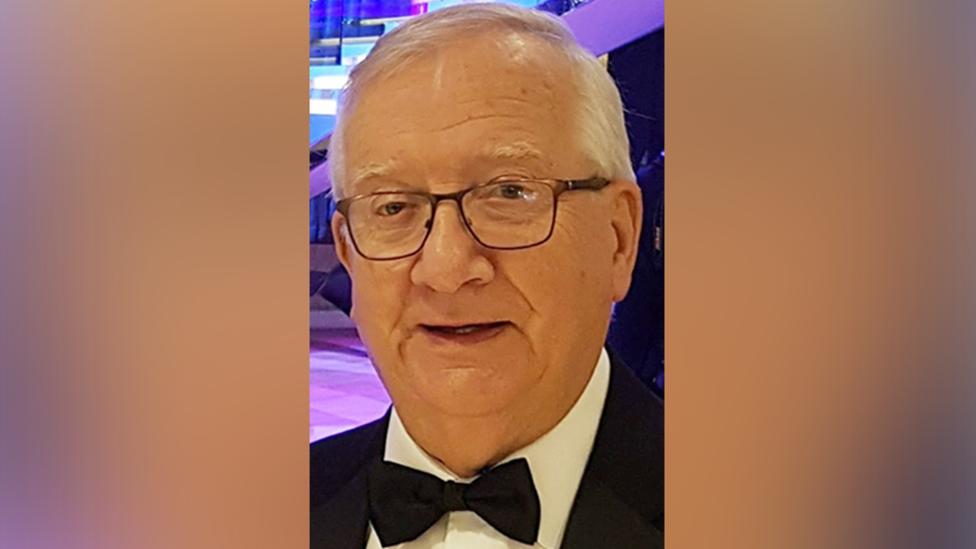Covid: Mark Drakeford meets bereaved families asking for Wales inquiry
- Published
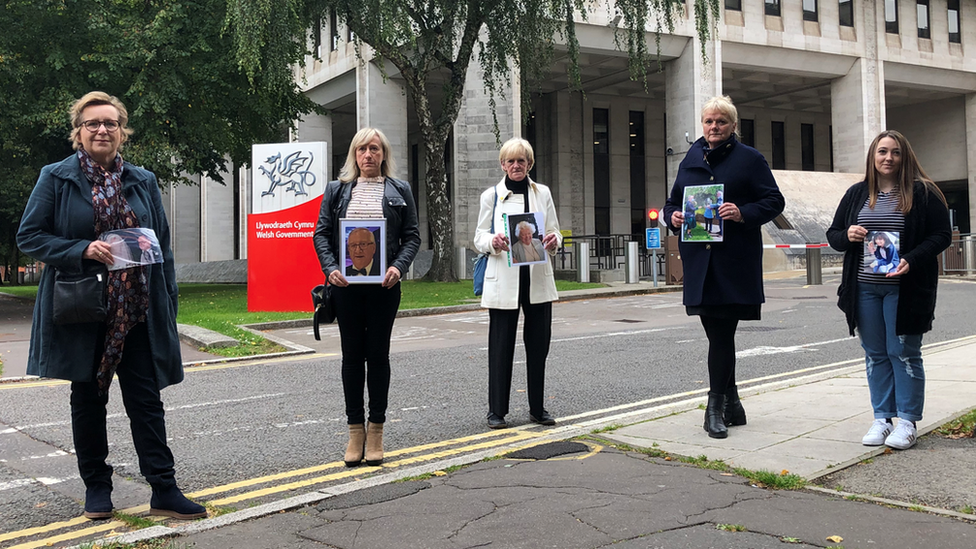
The families outside the Welsh government offices
Campaigners who lost loved ones in the pandemic say they have had an "incredibly positive" meeting with the first minister over their call for a Wales-specific public inquiry.
Members of Covid Bereaved Families for Justice Cymru were invited to the meeting by Mark Drakeford.
They also discussed topics such as care home deaths and hospital infections.
The Welsh government said the families agreed to meet Mr Drakeford again and it was the start of "ongoing dialogue".
Group founder Anna-Louise Marsh-Rees believes Wales' handling of the coronavirus pandemic should not be a "footnote" in a UK-wide inquiry. But Mr Drakeford has previously said he was "not in favour of rival inquiries".
After the meeting, Ms Marsh-Rees said it had gone "really, really well", and was "very productive".
"He spent an hour and a half with us. It was incredibly positive. The key thing for him now is to get a response to the letter he wrote to [UK cabinet minister] Michael Gove about the shape of the inquiry.
"The next milestone in his decision-making will be regarding when the chair [of the UK inquiry] is appointed and how involved Wales will be in that decision-making. He listened and was quite emotional."
Anna-Louise Marsh-Rees said she had to get answers for her dad and other families in Wales
Group members said they had given Mr Drakeford "a tough time" and "we didn't let him off the hook". They said this was "the beginning of the dialogue", and he had given them "confidence".
Ms Marsh-Rees said: "It was a very productive meeting and we were properly listened to."
A second meeting with Mr Drakeford will be held before Christmas.
Ms Marsh-Rees lost her father Ian to Covid last October after he was admitted to Nevill Hall Hospital in Abergavenny, Monmouthshire, for a gall bladder infection.
She previously said it was "awful" to watch her father, who had been shielding at home for months to protect himself, "die gasping for breath".
She believes he caught the virus while in hospital and began campaigning for an inquiry after not being satisfied with answers from the health board.
Nearly a quarter of people who have died with Covid-19 in Wales were infected in hospital.
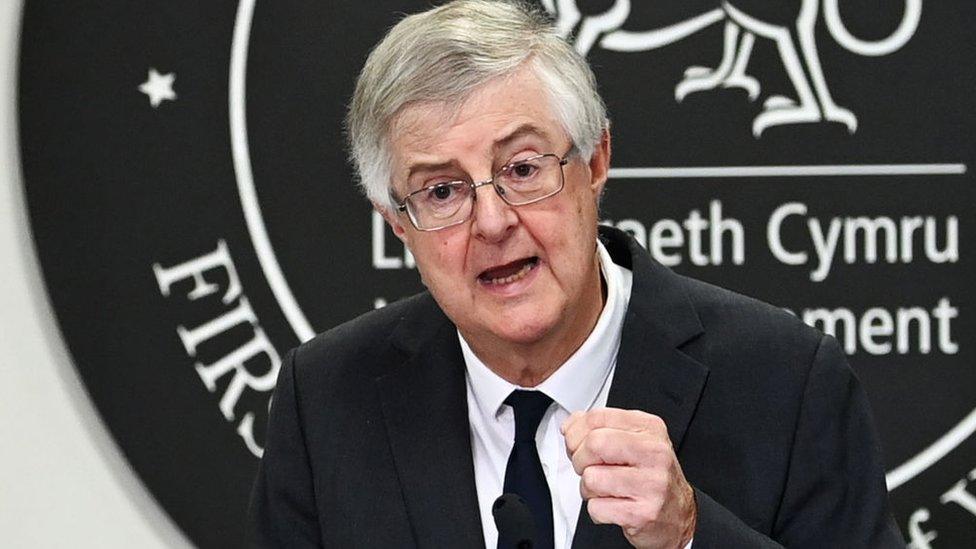
Mark Drakeford has said a UK probe is more appropriate, but Welsh ministers are considering a Wales-specific inquiry
The Welsh government has previously stated a UK-wide inquiry was the best option for understanding the experiences of people in Wales.
But Ms Marsh-Rees said, because the pandemic had raised questions about health and social care, Wales should have its own inquiry because that is where those types of decision were made.
"We basically want what Scotland is doing - a judge-led inquiry and a human rights-based inquiry," she added.
The Scottish government has confirmed it will hold its own inquiry into the pandemic, despite First Minister Nicola Sturgeon previously stating her preference was for it to be UK-wide.
Ms Sturgeon said that inquiry would look at "all matters related to the handling of the pandemic that are within our devolved competence".
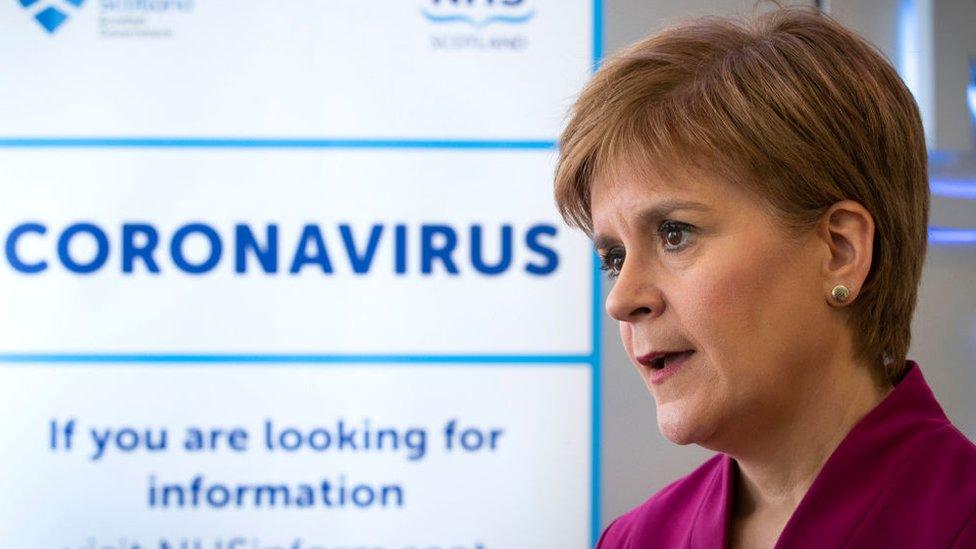
The UK public inquiry will not begin until spring 2022, whereas Nicola Sturgeon had called for it to begin this year
The Welsh government spokesperson said Mr Drakeford had thanked the families for being "open and honest" in the meeting.
"The first minister welcomed the opportunity to meet the families and to listen to their concerns and experiences," they said.
Plaid Cymru health spokesman Rhun ap Iorwerth said the Welsh government had "no excuse" not to follow suit.
"We need to look at what happened in detail, and in public, to learns lessons for the future," he said.
However, Prof Hugh Pennington, who chaired Wales' E. coli inquiry in 2005, has warned that a Wales-specific probe would lead to "an enormous degree of overlap".
Prof Pennington said focusing solely on decision-making in Wales could result in "ignoring important information".
He also argued that a Welsh inquiry would have more limited powers to make people give evidence.

MONUMENTAL MRS CAMPBELL: Wales' first black head teacher celebrated with iconic statue
MOTHERS, MISSILES AND THE AMERICAN PRESIDENT: The story of Greenham told like never before

- Published19 September 2021
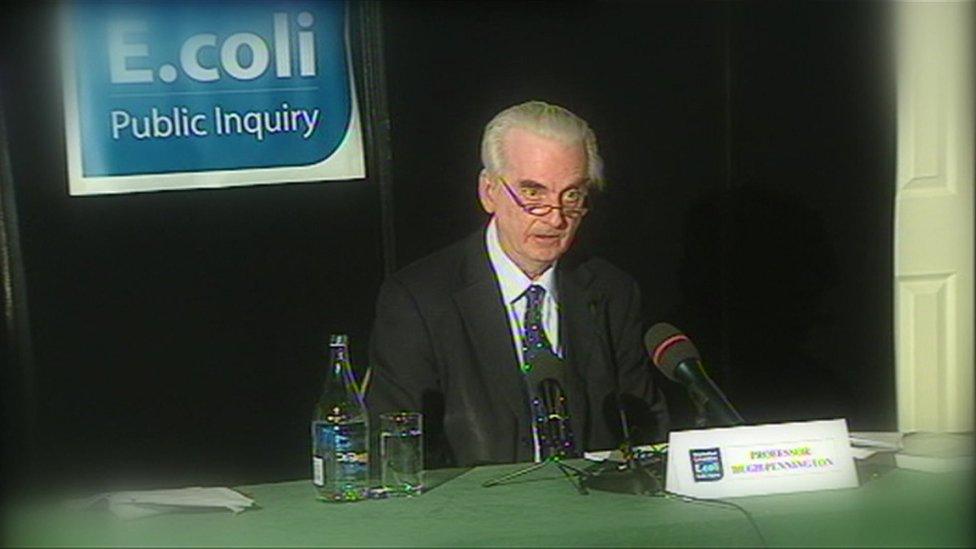
- Published24 August 2021
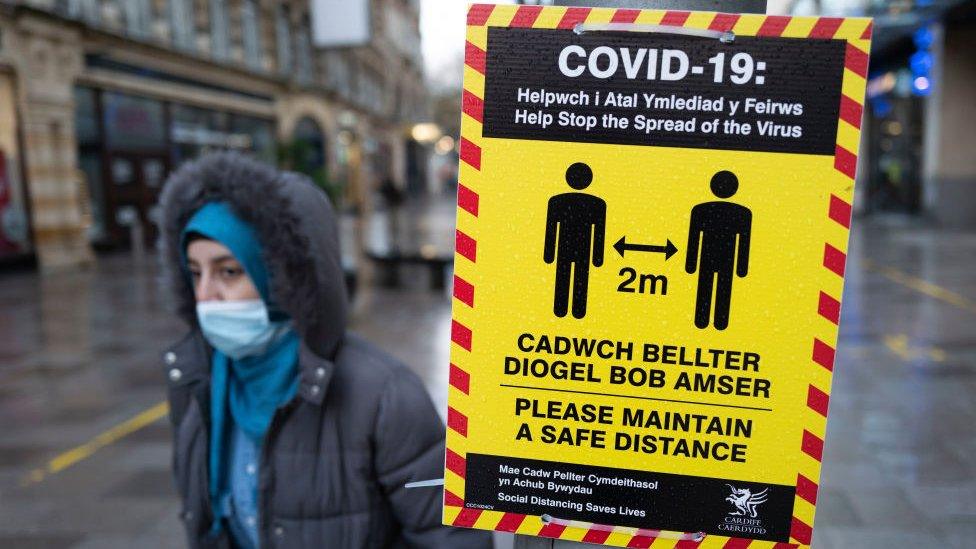
- Published24 August 2021
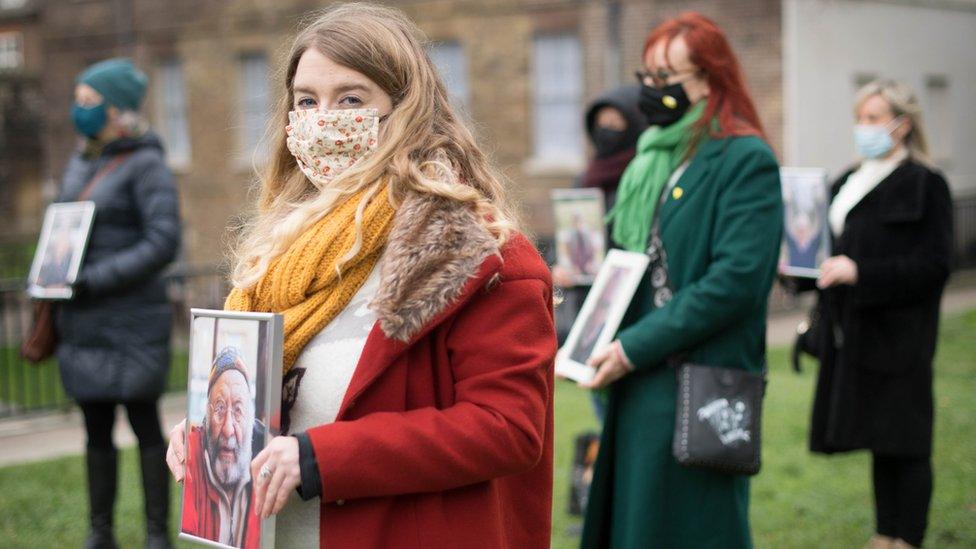
- Published20 August 2021
